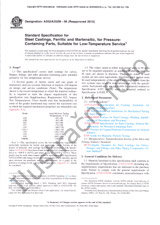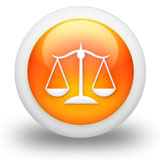Potřebujeme váš souhlas k využití jednotlivých dat, aby se vám mimo jiné mohly ukazovat informace týkající se vašich zájmů. Souhlas udělíte kliknutím na tlačítko „OK“.
ASTM B808-10(2020)
Standard Test Method for Monitoring of Atmospheric Corrosion Chambers by Quartz Crystal Microbalances
Přeložit název
NORMA vydána dne 1.10.2020
Informace o normě:
Označení normy: ASTM B808-10(2020)
Datum vydání normy: 1.10.2020
Kód zboží: NS-1008011
Počet stran: 4
Přibližná hmotnost: 12 g (0.03 liber)
Země: Americká technická norma
Kategorie: Technické normy ASTM
Kategorie - podobné normy:
Anotace textu normy ASTM B808-10(2020) :
Keywords:
corrosion monitor, piezoelectric crystals, sensors, thin-film monitor,, ICS Number Code 77.060 (Corrosion of metals)
Doplňující informace
| Significance and Use | ||
|
4.1 Corrosion film growth with thicknesses varying from a monolayer of atoms up to 1 μm can readily be measured on a continuous, real-time, in-situ, basis with QCMs. 4.2 The test results obtained for this test method are influenced by various factors, including geometrical effects, temperature, humidity, film thickness, film materials, electrode conditions, gases in the corrosion chamber, atmospheric pressure, and so forth. Calibration of coated crystals and instrumentation and reproducible crystal operating conditions are necessary for consistent results. |
||
| 1. Scope | ||
|
1.1 This test method monitors the reactivity of a gaseous test environment in which metal surfaces (for example, electrical contacts, assembled printed wiring boards, and so forth) and other materials subject to pollutant gas attack undergo accelerated atmospheric corrosion testing. This test method is applicable to the growth of adherent corrosion films whose total corrosion film thickness ranges from a few atomic monolayers to approximately a micrometre. 1.2 The test method provides a dynamic, continuous, in-situ, procedure for monitoring the corrosion rate in corrosion chambers; the uniformity of corrosion chambers; and the corrosion rate on different surfaces. Response time in the order of seconds is possible. 1.3 With the proper samples, the quartz crystal microbalance (QCM) test method can also be used to monitor the weight loss from a surface as a result of the desorption of surface species (that is, reduction of an oxide in a reducing atmosphere). (Alternative names for QCM are quartz crystal oscillator, piezoelectric crystal oscillator, or thin-film evaporation monitor.) 1.4 This test method is not sufficient to specify the corrosion process that may be occurring in a chamber, since a variety of pollutant gases and environments may cause similar weight gains. 1.5 This test method is generally not applicable to test environments in which solid or liquid particles are deposited on the surface of the quartz crystal. 1.6 The values stated in SI units are to be regarded as standard. The values in parentheses are for information only. 1.7 This standard does not purport to address all of the safety concerns, if any, associated with its use. It is the responsibility of the user of this standard to become familiar with all hazards including those identified in the appropriate Safety Data Sheet (SDS) for this product/material as provided by the manufacturer, to establish appropriate safety, health, and environmental practices, and determine the applicability of regulatory limitations prior to use. 1.8 This international standard was developed in accordance with internationally recognized principles on standardization established in the Decision on Principles for the Development of International Standards, Guides and Recommendations issued by the World Trade Organization Technical Barriers to Trade (TBT) Committee. |
||
| 2. Referenced Documents | ||
|
Doporučujeme:
Aktualizace zákonů
Chcete mít jistotu o platnosti užívaných předpisů?
Nabízíme Vám řešení, abyste mohli používat stále platné (aktuální) legislativní předpisy.
Chcete vědět více informací? Podívejte se na tuto stránku.




 Cookies
Cookies
